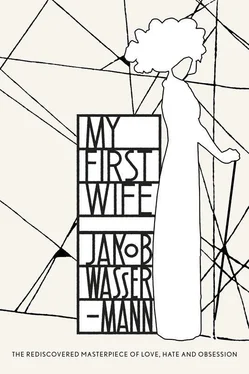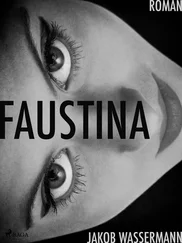I don’t know if it might have been wiser not to say the thing about the revolver. In her inner confusion, she couldn’t distinguish between what was admissible and what went beyond. She was in the grip of passion, blind, animal passion. The stone tumbling down over a precipice doesn’t think about whether it’s going to strike some poor walker down below. And her passion, her dumb momentum, was like a force of nature to me.
FEDORA
There had been a little group of us there, which, because the season was advanced, had begun to dwindle. Now only my friend Fedora Remikov was left, a young pianist from Moscow, and, with her, Dr Eduard Riemann, an exceptionally clever and well-read man of my own age — philosopher, scholar, well-off playboy. I liked him more and more; rarely have I met a clearer head and a more unimpeachable spirit. Those two, who were close, had noticed my distrait and unhappy mood, and as they had seen me several times in Ganna’s company, they thought she might have something to do with it. Fedora put it to me directly. I avoided the question, but one day I asked her whether I might introduce Ganna to her. I wanted to get her opinion. I wanted to know what impression Ganna would make on such a pure and unpartisan being. We arranged to have tea together. Riemann was to be present as well. The experiment went pretty badly wrong. Ganna was terribly excited. She had the feeling she was to be examined by my friends. When she appeared, her demeanour was like that of a defendant in court. In the effort to show her best, she cramped up. Fedora sensed the strain she was under and looked at her sympathetically. Conversation happened to turn to the then much-read book The Rembrandt German and a discussion developed between Ganna and Eduard Riemann, who had no great admiration for the work; if I remember correctly, he described it as a set of glib paradoxes to please a bourgeois readership. Ganna argued with him. Unfortunately, she was too vehement. She was no match for Riemann’s knowledge and superior logic, but she was unwilling to face it, and talked like a teenaged philosopher. Riemann bounced good-humouredly back and forth on his chair. His replies were gentle but devastating. Fedora stayed out of it. When her eyes met mine, there was a questioning look in them. I admired Ganna’s pluck, her reading and her ability to think on her feet. The disapproval of my friends upset me. It was as if I were being misunderstood, as if adverse circumstances kept Ganna from showing herself in her true light, and I identified with her.
Ganna had sensed that she was not making the hoped-for impression on Fedora and Riemann, and so she sought to do better. She shouldn’t have bothered. God knows what made her think she had to gain a supporter in Fedora. That was already proof of her bad instincts. She always behaved as though she could force people to like her. She brought Fedora little bunches of flowers, and sent her notes with vehement declarations of undying love. To begin with, she had thought there was more between Fedora and me than mere friendship. When Fedora straightened her out with a few cool words, in more or less the way you correct something misreported in a newspaper, Ganna threw herself at her and kissed her. An unpardonable mistake. Shortly afterwards, on the eve of Ganna’s departure for Vienna, when Ganna had come to say goodbye, it was Fedora’s turn to make a mistake. She was foolish enough to counsel Ganna against marriage with me, and tried to talk her into giving up the idea.
She said: ‘If not for your sake, then for his.’
Ganna replied with flashing eyes: ‘What do you think you’re playing at, Fedora? How can you talk like that? Alexander and I belong together for ever and ever.’
Fedora told me about it a few days later, with a cold chuckle. I can still see her, leaning against the grand piano, with her white handkerchief by her mouth. Because she suffered from morbid obesity, and was prone to asthma attacks while playing, she was in the habit of keeping a handkerchief impregnated with some solvent to her mouth. In spite of her fatness, she was an attractive person; on top of the outsize body there was a real Bellini head with clever, piercing eyes. She asked me what would happen now, how things stood between Ganna and me. I said Ganna was going to talk to her father. She wanted to know whether this step had my approval. And when I said it did, then whether my conscience was clear. I became impatient, and accused her of being unfair to Ganna, and of failing to understand her magnanimous nature, and of being peevish and feminine herself. She shrugged her shoulders and replied quietly: ‘These are subtle matters, my friend, incredibly subtle matters …’
The next morning I got a note from her. I kept it for years and years, until I finally lost it during the move to Ebenweiler. She was worried about me, she wrote. I ought to consider very carefully the step I was contemplating. I should examine my reasons, wait, not hurry anything, she begged me. ‘You must love your future,’ she went on, ‘you must love it the way a woman cherishes her unborn child. You are carrying a huge responsibility. You are taking an extraordinary risk. You must respect what fate has in store for you. I am very concerned. It is the bitterest of disappointments when a friend fails to keep what he promised to friendship, because he promised it also to the world. If you have already tied the knot, then that to me is a form of betrayal, and I don’t want to see you again.’
The sentences stuck in my memory. But they didn’t have the effect that Fedora meant them to have. I was cold inside. I looked for reasons that were nothing to do with Fedora’s blameless nature. I put myself completely and not without anger on Ganna’s side. It appeared to me that it wasn’t enough to return her love; no, I also had to be her knight and protector. The next day, I heard Fedora and Riemann had left.
GANNA SWEARS
There’s something I’ve forgotten to tell, although it has no particular importance. Only at the time it had a certain significance for me, who was so short of worldly wisdom. The last evening before our separation, we were sitting by the lake. After a long silence I turned to her and said:
‘Well, all right, Ganna. We’ll do it your way. But on one condition. You must solemnly swear to release me if I should ever ask to be released.’
Ganna, the innocent child, the offended and mistreated child, answered reproachfully:
‘Oh, Alexander, how could you think I would ever refuse! I wouldn’t be worthy of you if I was like that!’
She looked at me with her maidenly eyes and hand upraised, and swore to God. I was eased.
Believe it or not, I was eased. What a failure to understand the word, and the effect of the passage of time, and the meaning of God’s name in a philosophically enlightened soul like Ganna’s! It was a beginner’s error. Would a man in love have required such assurance, and would a woman, wanting to keep him, not have given it by the sun and moon and God and all his angels? The passing years make a mockery of the gravest oath, and memory is an eager bawd.
Then, when she was gone, I thought of her very tenderly. There were moments in which I took my feeling for love, but then I would say to myself: love is a ball of mercury, the pursuit of which costs half a lifetime; if you try to pick it up, it breaks apart, you never get all of it. Comradeship appealed to me. Harmony of two souls, I tried to convince myself, makes love dispensable. It can’t be a sin to obtain love, not if you’re able to pay something for it. And what I was able to pay was in the form of tenderness, tender understanding, tender guidance, tender confidence. That was the way to go. I was convinced it was right. I didn’t notice that I was losing myself in emotional casuistry.
Читать дальше







![Jakob Wassermann - Issue Does Not Exist],errors:{](/books/585068/jakob-wassermann-issue-does-not-exist-errors-thumb.webp)




